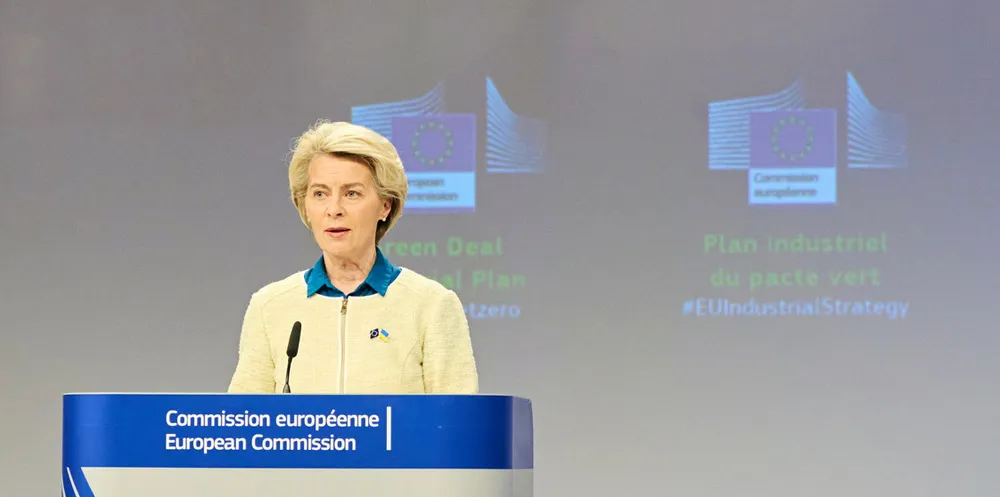Renewables a winner as EU pledges $51bn to strengthen ties with Latin America
Renewables, critical materials and democratic values share centre-stage in an EU initiative to strengthen links with Latin America and the Caribbean.

The European Union has committed €45bn ($51bn) to help key economic development projects in Latin America and the Caribbean, with a strong focus on energy transition and renewables, including a major green hydrogen initiative in Chile.
The funding initiatives, running to 2027, were announced by EU Commission president Ursula von der Leyen during a EU-CELAC summit today (Monday) and framed as part of the bloc’s EU-LAC Global Gateway Investment Agenda (GGIA), which revolves around “a fair green transition, an inclusive digital transformation, human development and health resilience and vaccines.”
The funding commitments in the GGIA covered more than 130 projects on both sides of the Atlantic and energy transition projects among those highlighted from this list included critical materials, such as lithium, in producer nations such as Argentina and Chile, serving, according to an EU statement, to “strengthen sustainable supply chains.”
Hydrogen production in Chile was also among the highlights on the list of funding commitments aimed at stimulating investments.
The EU has been keen to strengthen diplomatic and economic ties with Latin America, where China has become the leading trade partner for many nations and has been making big strides with trade-linked development packages.
The EU also sees the Latin America and Caribbean (LAC) nations as potential partners in strengthening the rules-based international order and standing together for democracy, human rights and international peace and security, especially in the wake of Russia’s invasion of Ukraine.
Commenting on the GGIA initiative, the EU Commission stated that “the fast-changing global context, with its increasing geopolitical challenges, makes this a critical moment to renew this partnership and enhance bi-regional cooperation to tackle the global climate and environmental crises, to harness technological changes and to combat rising inequalities.”
Von Der Leyen, said of the GGIA initiative: “We shaped a high-quality investment agenda together, to the benefit of both our regions. We agreed on sectors and value chains to prioritise, from clean energy and critical raw materials to health and education.
"And it's not just about how much we are spending, but also how we are investing. Global Gateway comes with the highest environmental and social standards, and with transparency. This is Europe's way of doing business”.
The funding was committed within the Team Europe framework whereby the European Union, and member states — including their implementing agencies and public development banks — as well as the European Investment Bank (EIB) and the European Bank for Reconstruction and Development (EBRD).
Export credit agencies and other public sources of funding are expected to work together to in public-private partnerships with the private sector.
The EU-LAC business round table was co-organised with the Inter-American Development Bank and the Development Bank of Latin America.
The Community of Latin American and Caribbean States (CELAC) is an intergovernmental mechanism for dialogue and political accords.
(Copyright)